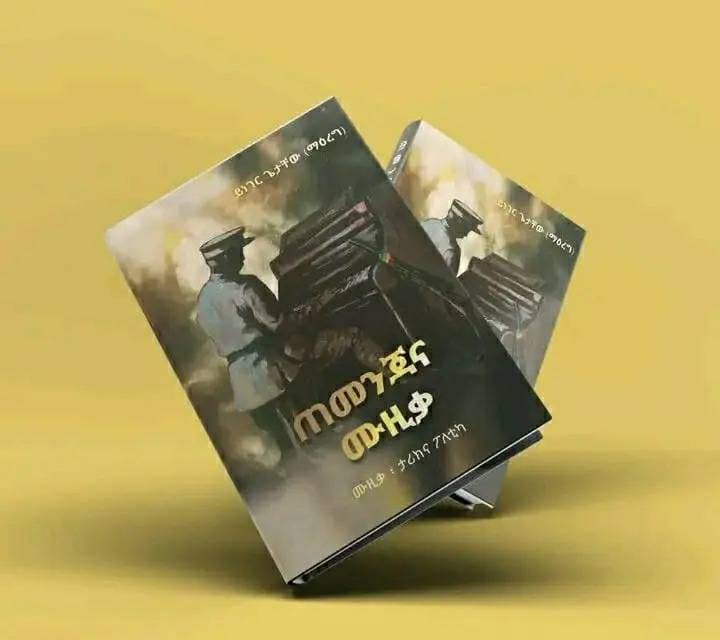Gun and Music: Music, History, and Politics [Amharic]
By Yineger Getachew
2023, Teyim Books, 379 pages, 450 ETB
As a layman with no formal training in music, I may not be the most qualified reviewer for Gun and Music (ጠመንጃና ሙዚቃ), but as a musicophile, I found this book informative and well-researched. Yineger Getachew's Gun and Music delves into the captivating interplay between guns and music in Ethiopia, shedding light on the rise of modern music and the intricate connections between music, history, and politics.
One of the book's standout qualities is its masterful blend of narrative history and group biography. Reminiscent of renowned works such as Reidulf K. Molvaer's Black Lions and Bahru Zewde's Pioneers of Change, Gun, and Music presents captivating stories of exceptional musicians with diverse musical talents. From vocalists and arrangers to lyricists and melodists, their journeys unfold throughout the pages, offering compelling insights into the development of modern Ethiopian music.
Including a rich selection of photographs and informative appendices enhances the reading experience, providing a visual connection to the subject matter. Yineger Getachew's thorough research is evident, making Gun and Music a valuable resource for scholars and those seeking a comprehensive understanding of Ethiopian music in the twentieth century.
However, addressing a few proofreading and editing errors in Gun and Music is essential. For instance, on page 26, the title of Ethiopia's national anthem during the monarchical regime is given as 'Ethiopia Hoy,' On page 27, it is referred to as 'Marsh Ethiopia.' Additionally, on page 150, the composer of the Messiah is mistakenly identified as George Friedrich Hegel instead of the correct composer, George Frideric Handel. These errors should be rectified in future editions to ensure accuracy and credibility.
While Guns and Music offer a valuable contribution to the study of Ethiopian music in the twentieth century, it is essential to acknowledge its limitations. Further exploration is needed to understand the musical development in provincial towns beyond Harar fully. The dominance of political history in Ethiopian historiography often overshadows cultural and social aspects, creating an Addis-centric perspective that overlooks the broader musical landscape of Ethiopia.
Moreover, delving deeper into the music scene during the revolutionary years would have strengthened Gun and Music's central thesis. Musical nationalism played a significant role during this tumultuous period, and exploring the musical contributions of towns like Dessie, Debre Markos, and Gondar, as well as the notable bands such as Roha Band, Wallias Band, and Ethio Star Band, would have enriched the narrative. Additionally, the vibrant music scene of Ethiopia in the 70s and 80s presents a rich resource for future exploration.
In conclusion, Gun and Music (ጠመንጃና ሙዚቃ) is an engaging and insightful read that sheds light on the development of modern Ethiopian music and the intricate interplay between history, politics, and music. Yineger Getachew's well-written and accessible account makes a valuable contribution to the field. I highly recommend it to music enthusiasts, scholars, and anyone interested in exploring the rich musical heritage of Ethiopia.


